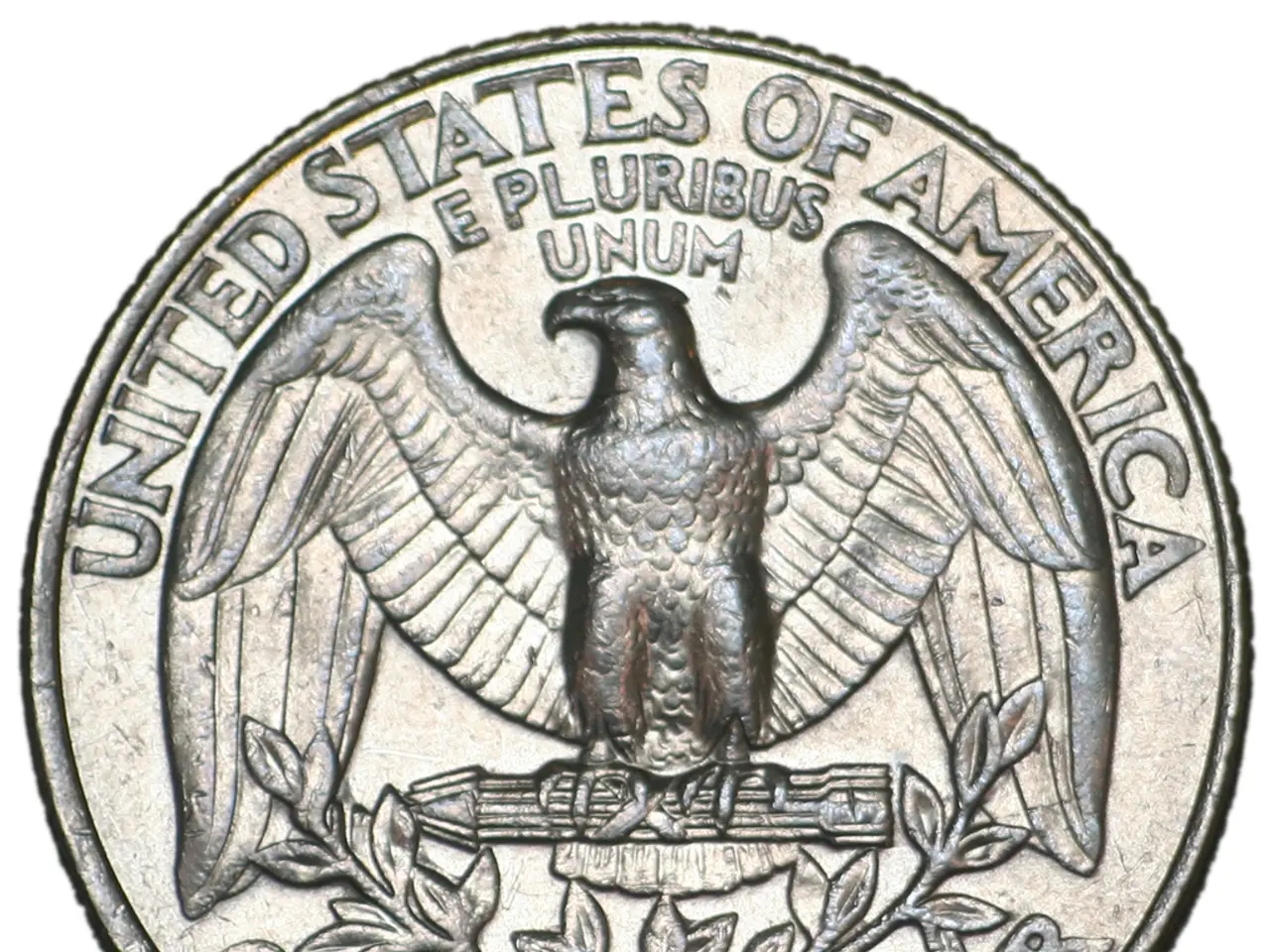Stock surge for Robinhood today: Underlying factors explored
**Robinhood Expands into Tokenized Trading and Crypto Futures in EU**
Robinhood, the popular investment app known for commission-free trading, has made a strategic move into the European Union (EU) by introducing tokenized trading, crypto perpetual futures, and crypto staking. This move aims to bridge traditional finance with blockchain technology, positioning Robinhood as a leading platform for both crypto and traditional asset trading.
**Tokenized Trading**
Robinhood has launched over 200 tokens that allow EU customers to trade U.S. stocks and ETFs. These tokens, initially issued on the Arbitrum blockchain, will eventually transition to Robinhood's own Layer 2 blockchain, currently under development. The tokens offer commission-free trading and direct dividend payments to investors.
Tokenized stocks provide faster settlement times, greater transparency, and the ability to trade 24/5. While investors do not have voting rights, they benefit from corporate actions like stock splits.
**Crypto Perpetual Futures**
Robinhood is introducing crypto perpetual futures in the EU, offering continuous exposure to assets like Bitcoin and Ethereum. These futures will be available with up to 3x leverage, traded via Bitstamp’s perpetual futures exchange. The futures are expected to be fully available by the end of summer.
**Crypto Staking**
While specific details on crypto staking within the EU are limited, Robinhood's push into broader crypto offerings suggests that staking could be part of a comprehensive suite designed to attract more users to its platform.
**Competition with Kraken and Coinbase**
Robinhood competes with major exchanges like Kraken and Coinbase by offering a unique blend of traditional and crypto assets on a single platform. Key competitive advantages include a unified platform, tokenization and blockchain integration, and a user-friendly interface.
However, Kraken and Coinbase are well-established players with a strong focus on crypto trading, offering a wide range of cryptocurrencies and sophisticated trading tools. They may counter Robinhood's moves by enhancing their own platforms with more traditional asset offerings or improving user interfaces to remain competitive.
Robinhood's shares are spiking, up 12.1% as of 3:24 p.m. ET on Monday. The commission for these token trades remains zero for Robinhood customers. This new service allows customers to trade U.S. stocks around the clock.
For investors with a higher risk tolerance, Robinhood stock could be a solid pick, but growth stagnation could lead to a significant correction. This move by Robinhood could potentially increase trading volume and user engagement. Robinhood also offers crypto staking for US users, expanding its crypto offerings.
This high valuation is not unusual for a tech company growing at this rate, but investors should keep it in mind. Robinhood's plan includes 24/7 trading on its own blockchain, marking a new direction for the company. The launch of tokenized trading in the EU is a significant move for Robinhood, potentially influencing other brokers to follow suit in offering similar services.
- Apart from traditional finance, Robinhood's foray into crypto perpetual futures with up to 3x leverage and crypto staking suggests a broader integration of technology like artificial-intelligence and gadgets into their platform.
- With the launch of tokenized trading, Robinhood customers in the EU can now trade U.S. stocks and ETFs, subject to commission-free trading and direct dividend payments, all backed by blockchain technology.
- As Robinhood expands its offerings to include more cryptocurrencies and staking services, it competes with platforms like Kraken and Coinbase, challenging them to improve their user interfaces or add traditional asset offerings to maintain their competitive edge.
- By offering commission-free trading, faster settlement times, and 24/5 trading, Robinhood's tokenized trading service might attract more investors who are interested in embracing finances in a modern context, such as with the use of money and technology.








